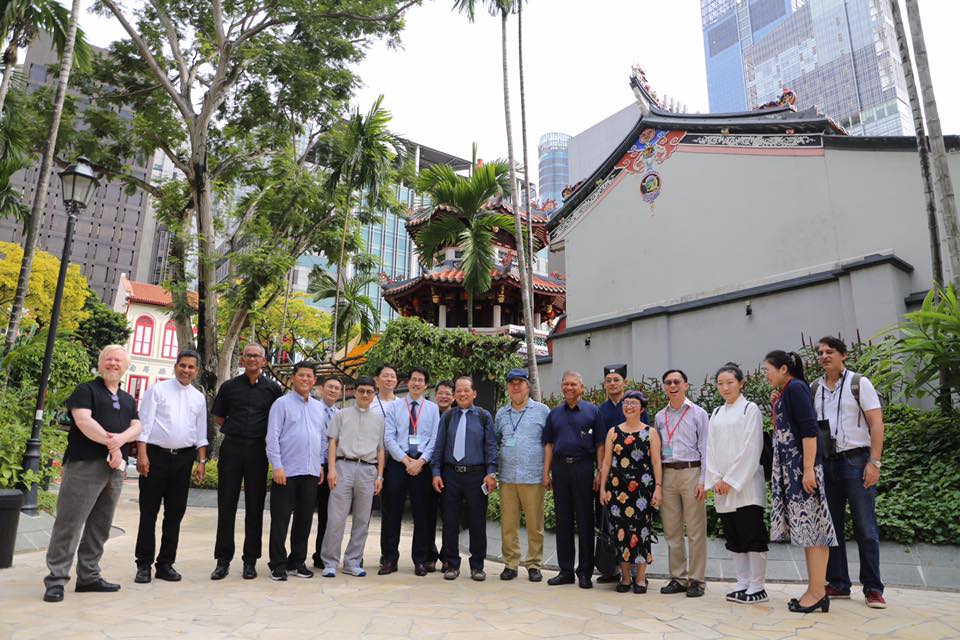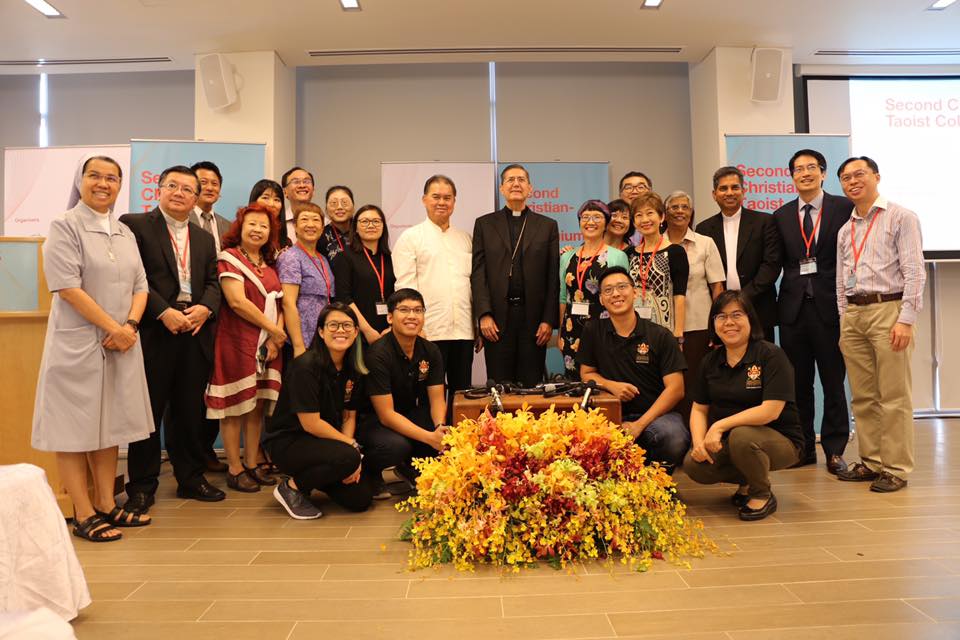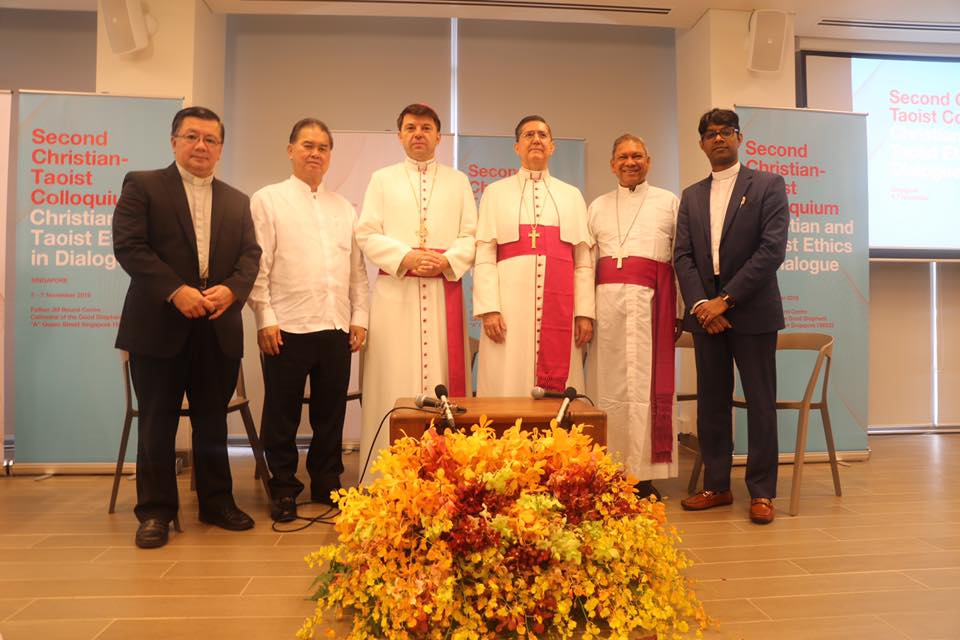The Pontifical Council for Inter-religious Dialogue (PCID), the Roman Catholic Archdiocese of Singapore, and the Taoist Federation of Singapore (TFS) jointly organized the Second Christian-Taoist Colloquium in Singapore from 5-7 November 2018. The theme of the Colloquium was “Christian and Taoist Ethics in Dialogue.” Seventy Christian and Taoist scholars and practitioners of interreligious dialogue mainly from Singapore but also from China, France, South Korea, Malaysia, Switzerland, Taiwan and the Vatican, took part in this event.
The Colloquium focused on the following topics: Today’s Crisis of Ethics and Hope for Tomorrow; Taoist and Christian Responses to the Crisis of Ethics; Social Institutions and the Transformation of Human Persons; Spiritual Development and Self-Cultivation; Global Ethics and the Inter-dependency of All Human Beings; Fostering a United and Harmonious Society; and Emerging Orientations for Future Christian-Taoist Engagement. The programme also included cultural and inter-religious visits to the Taoist Kew Ong Yah Temple, the Catholic Church of the Transfiguration, and the Harmony in Diversity Gallery. 
Inspired by our spiritual and interdisciplinary exchanges, we the participants agree on the following:
- We acknowledge that the Second Christian-Taoist Colloquium has helped strengthen our bonds of friendship and nurture our desire for further collaboration.
- We felt a deep sense of connection as we shared our concerns and hopes for the future.
- We affirm—because of the fundamental ethical teachings of our religious traditions to do good and avoid evil—that no one can escape the moral responsibility of transforming unjust macroeconomics, political, cultural, religious and legal structures.
- We recognize that today’s crisis of ethics requires a rediscovery of universal values based on integral ecology, social justice as well as the dignity of human life at every stage and circumstance. Therefore, the Universal Declaration of Human Rights (1948) remains a shared fundamental expression of human conscience for our times and offers a solid basis for promoting a more just world.
- We believe in the capacity of our two religious traditions to inspire a multi-faceted response to the challenges of our times. Therefore, we identify the need to retell Christian and Taoist wisdom traditions and stories in a language that is easily understandable, using new methods of communication.
- We believe that families, educational institutions, and religious communities are places of spiritual and moral formation where today’s youth can learn to shape tomorrow’s world into a better place.
- We have seen that interpersonal and scholarly exchanges between our religious traditions enabled us to work together to shape the ethical frameworks needed for the common good of this and future generations. We intend to continue this journey!



